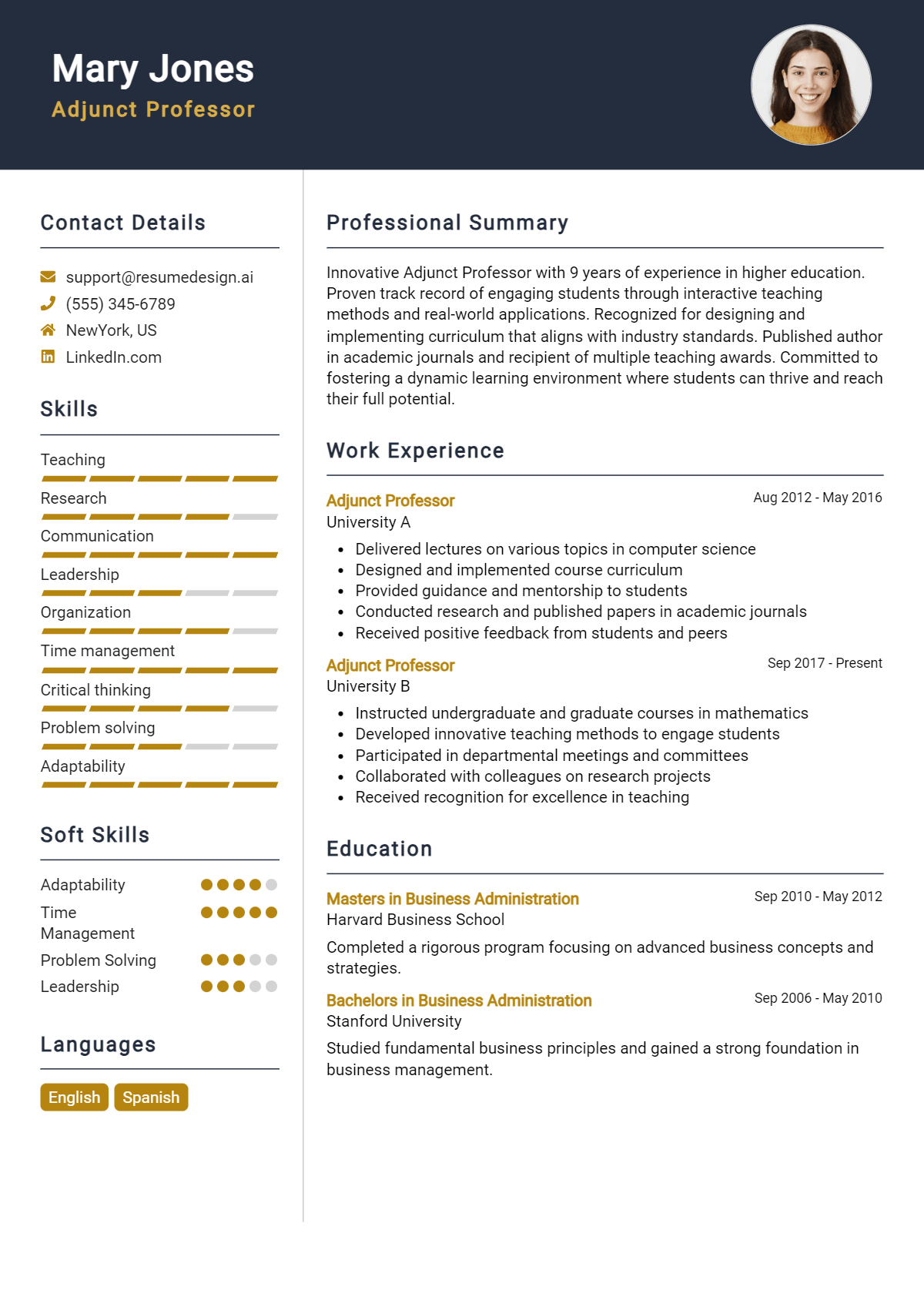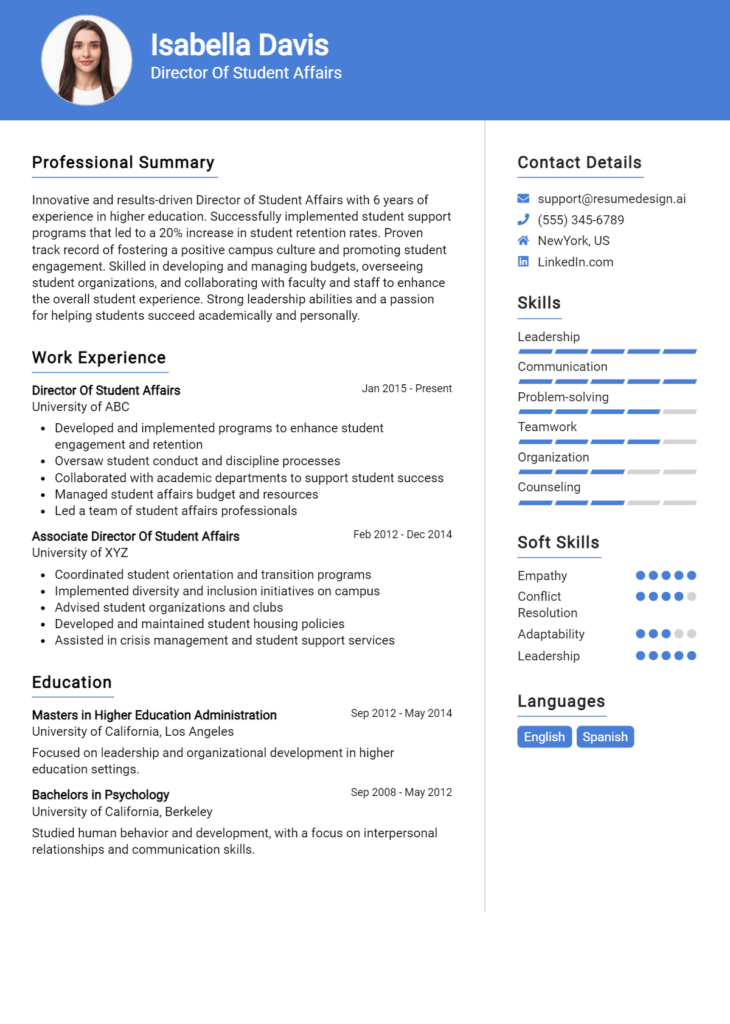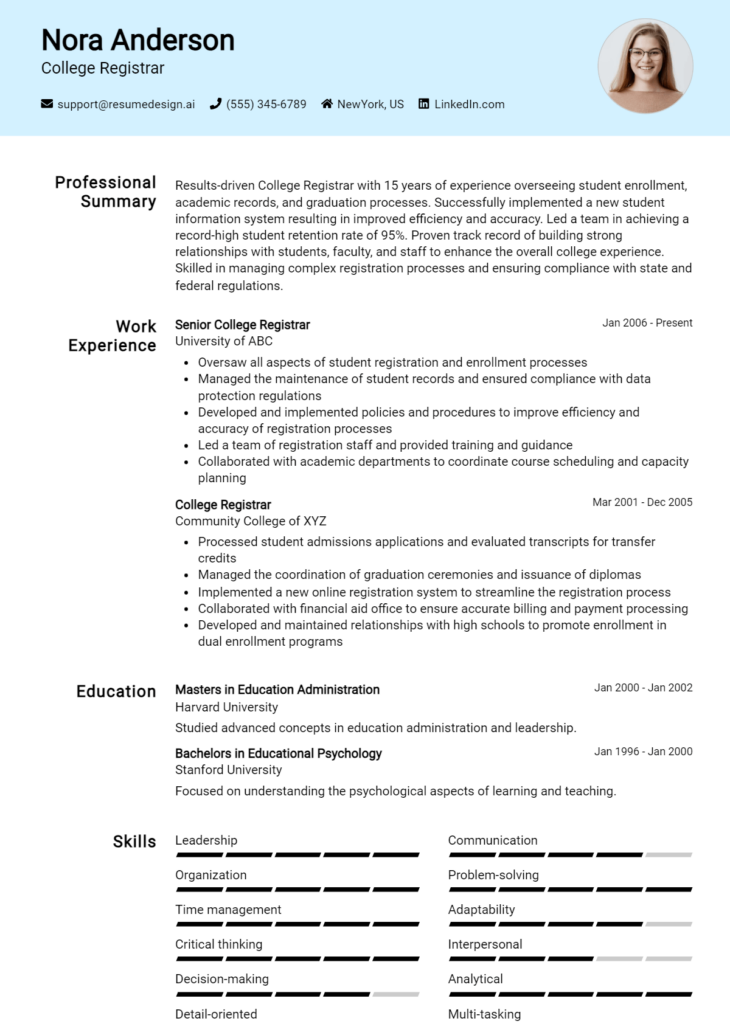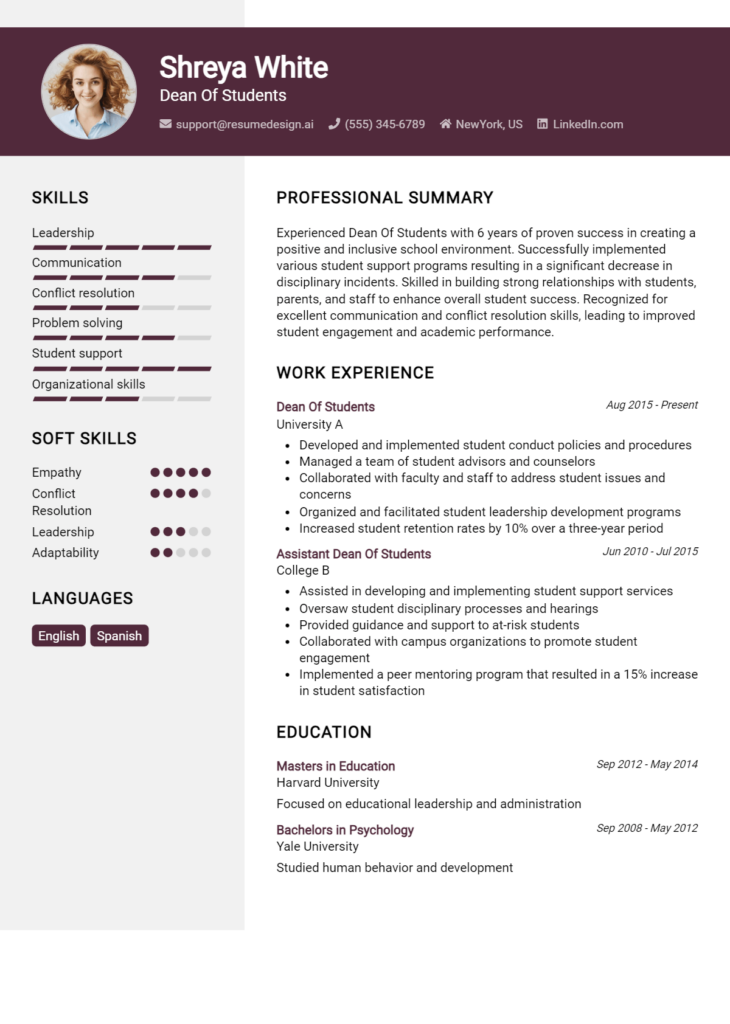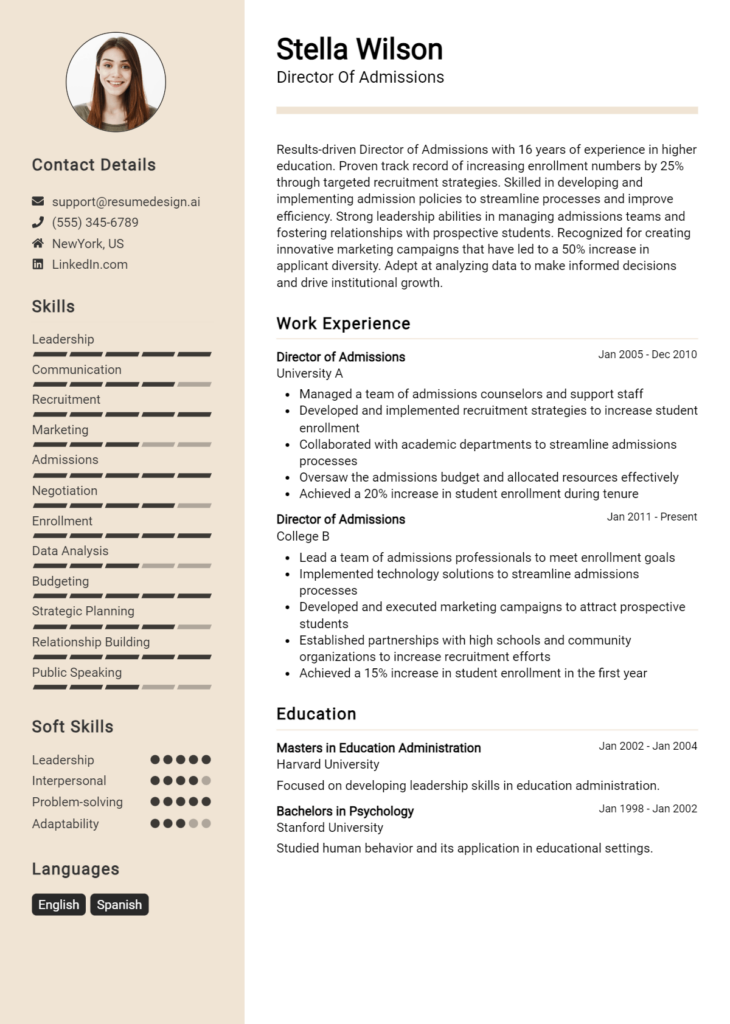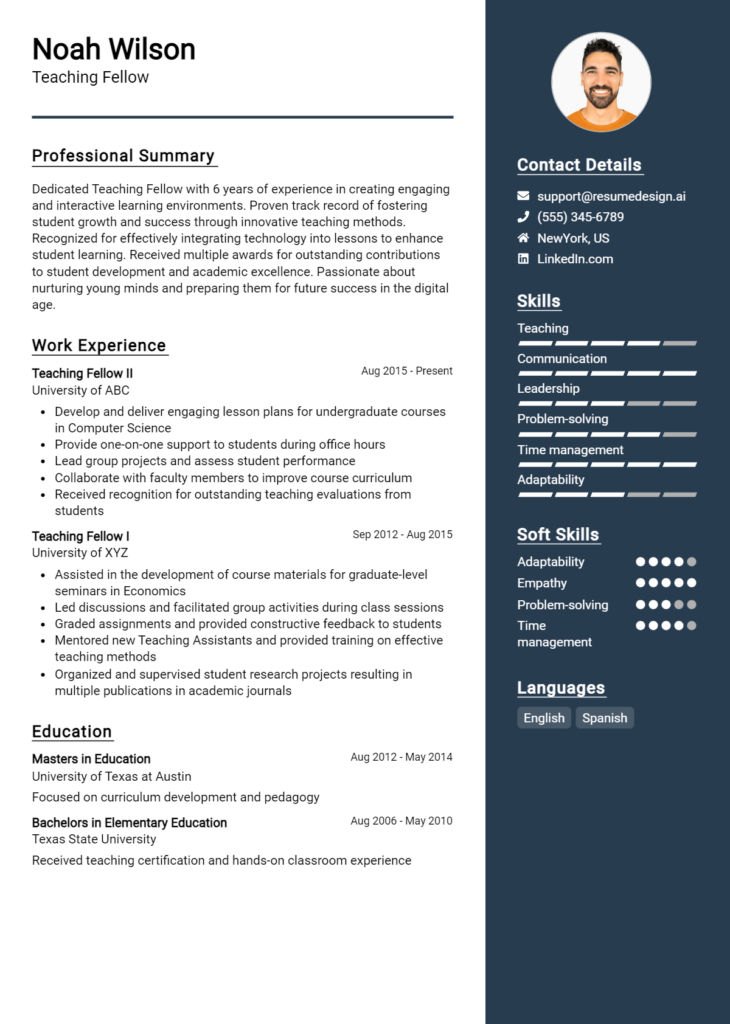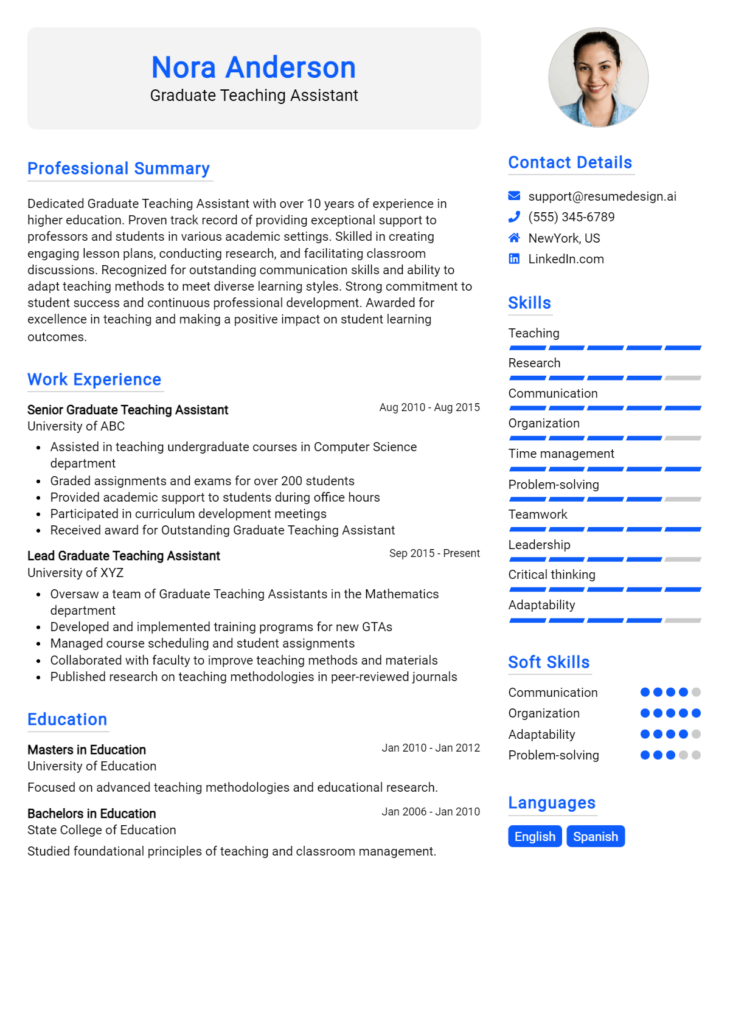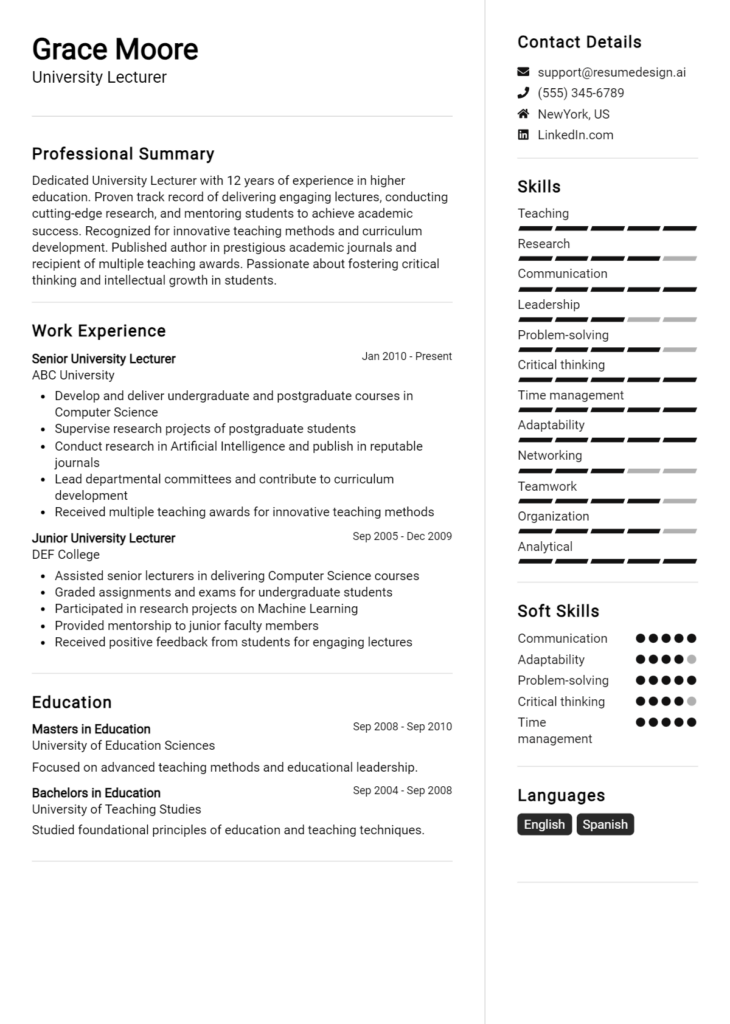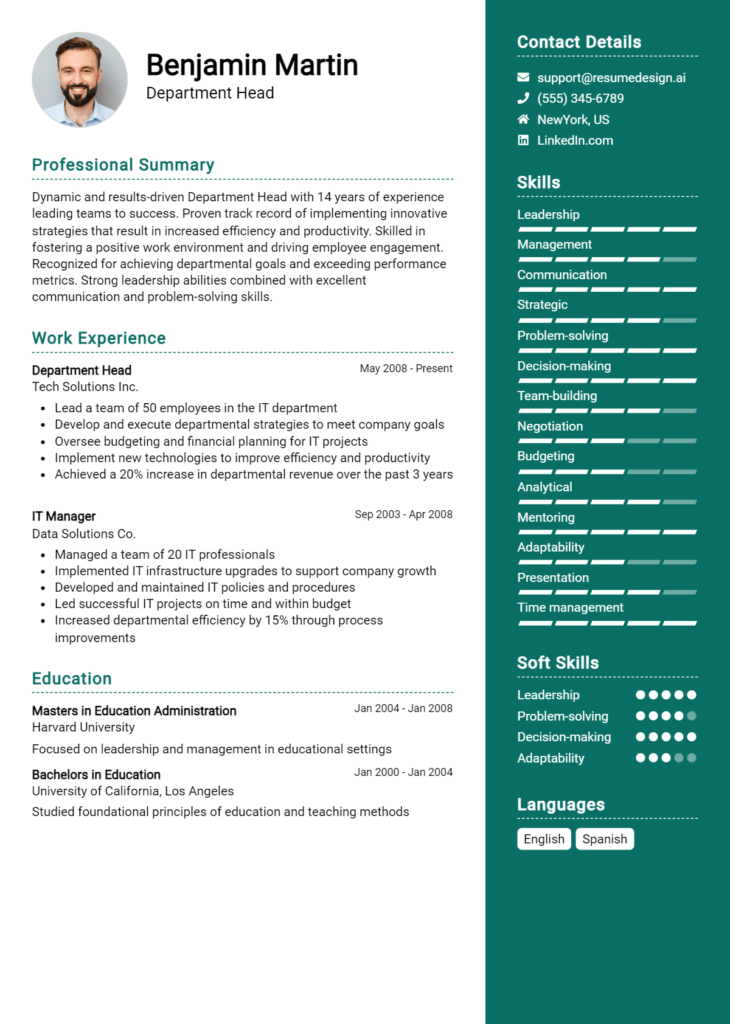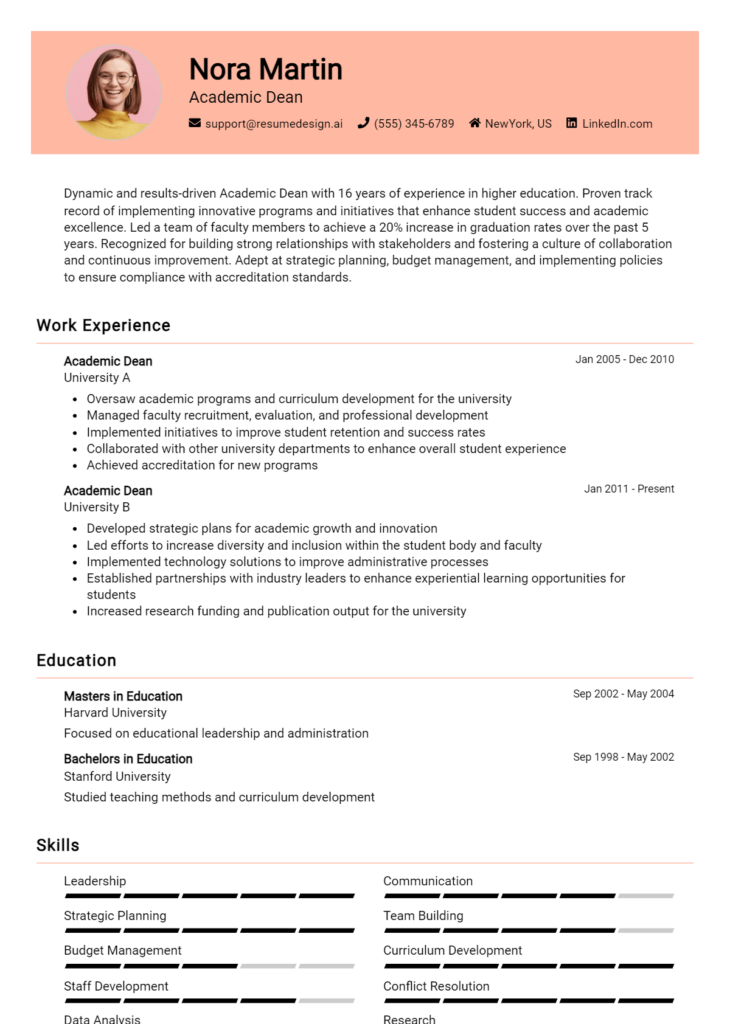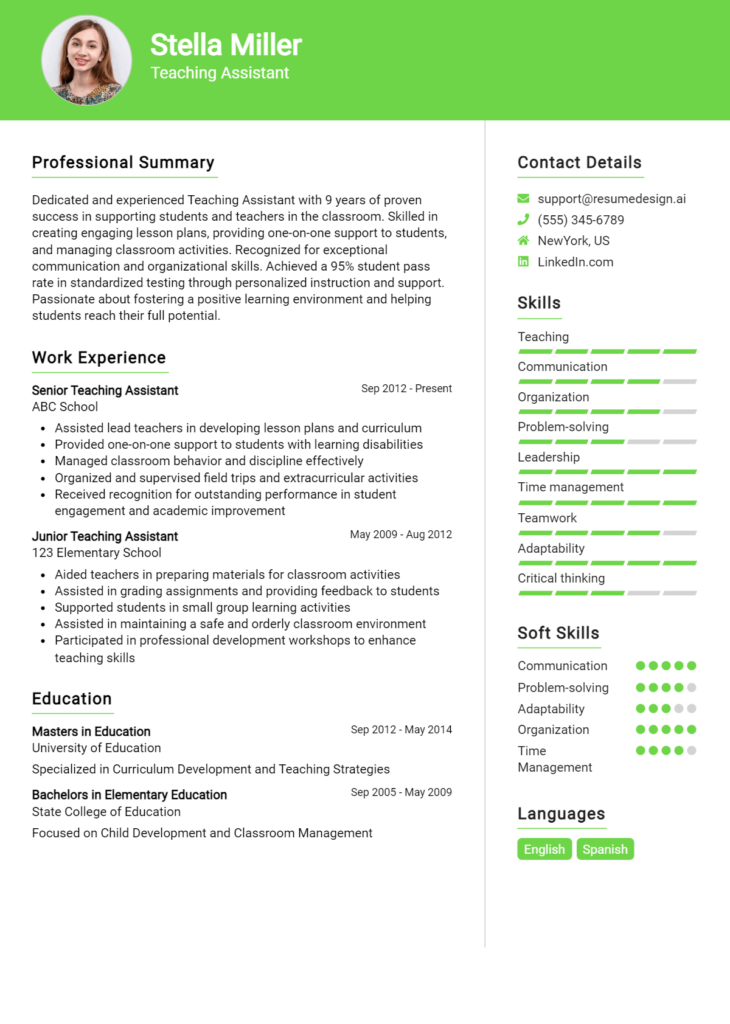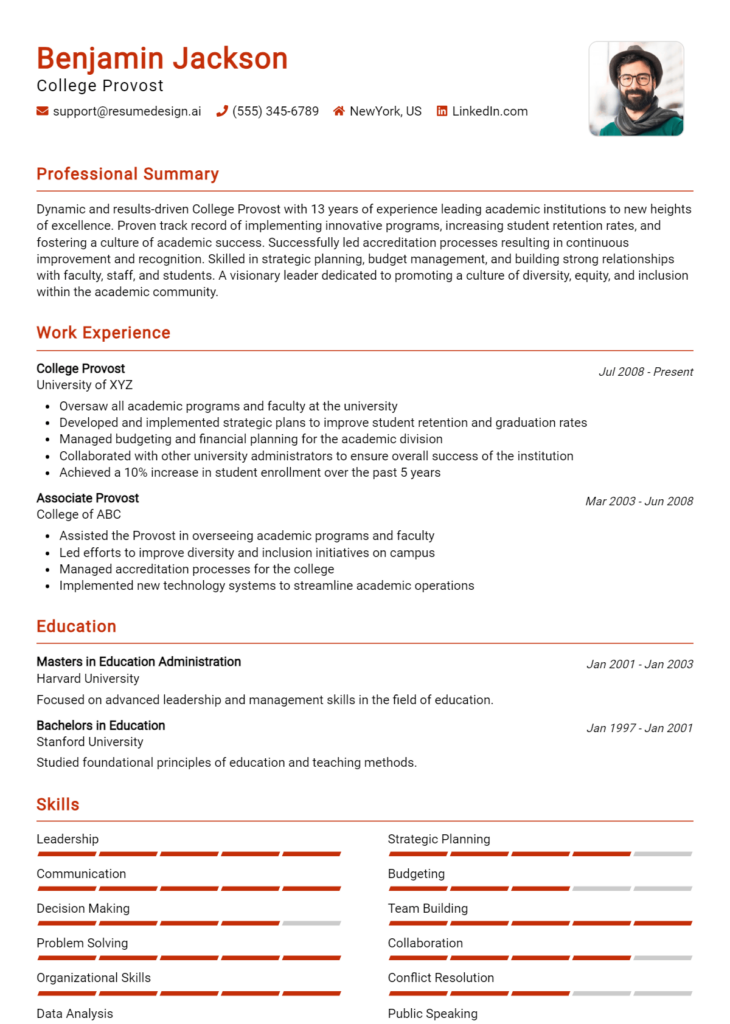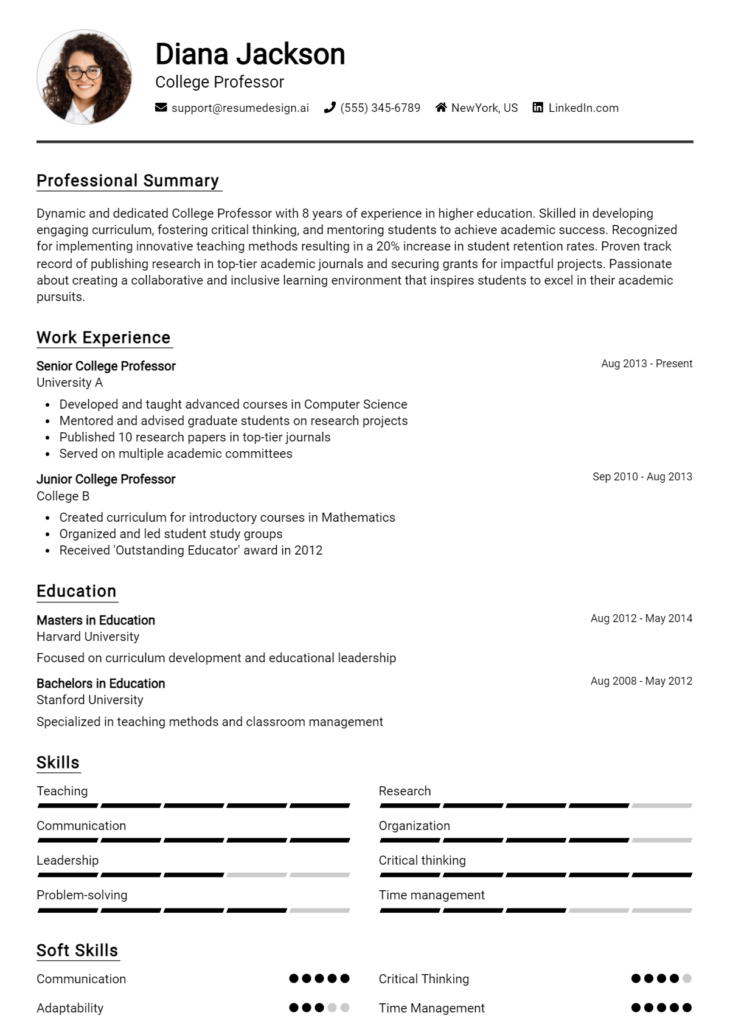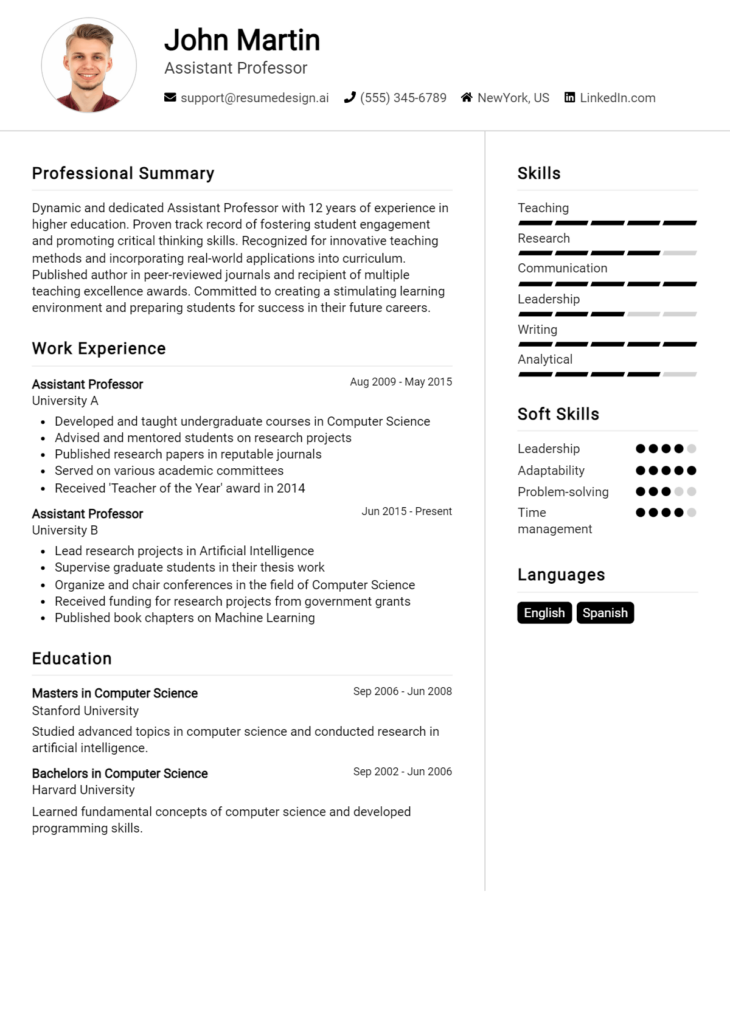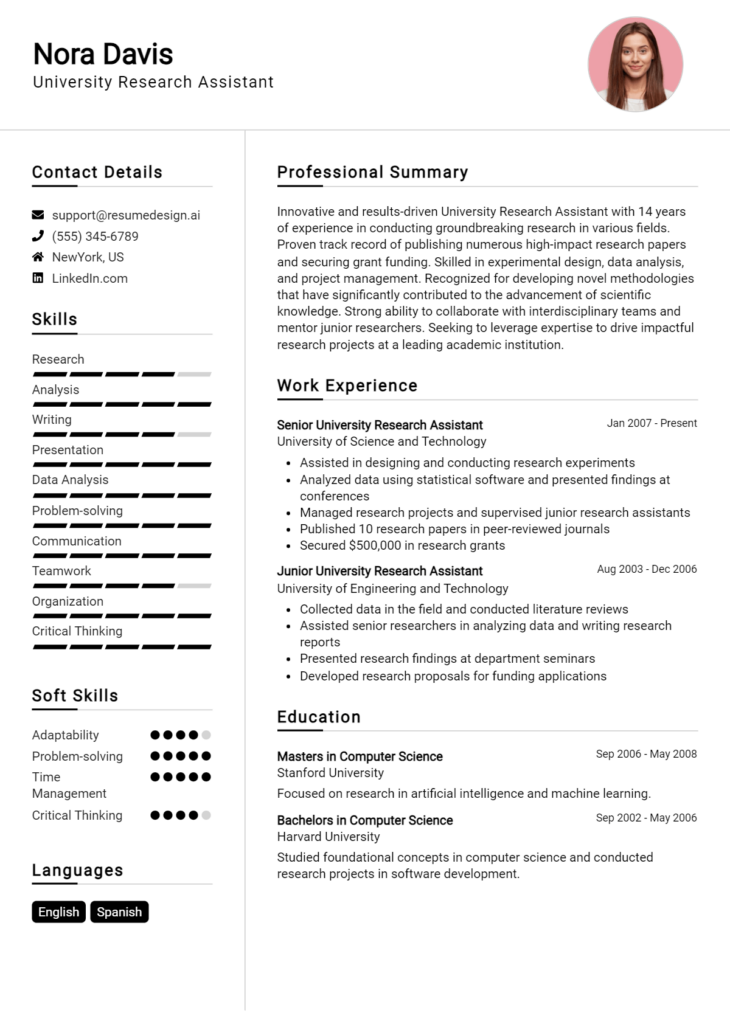Adjunct Professor Core Responsibilities
Adjunct Professors play a vital role in academia, bridging various departments by delivering specialized knowledge and fostering interdisciplinary collaboration. Key responsibilities include developing course materials, delivering lectures, and assessing student performance. Essential skills encompass technical expertise in their subject area, operational capabilities in managing classroom environments, and problem-solving abilities to address diverse student needs. These competencies contribute significantly to the institution's educational objectives, making a well-structured resume crucial for demonstrating these qualifications effectively.
Common Responsibilities Listed on Adjunct Professor Resume
- Developing and delivering curriculum aligned with academic standards.
- Conducting lectures, seminars, and laboratory sessions.
- Assessing and grading student assignments and examinations.
- Providing academic advising and mentorship to students.
- Collaborating with faculty on course development and departmental initiatives.
- Staying current with advancements in the field and integrating them into the curriculum.
- Participating in faculty meetings and contributing to program reviews.
- Maintaining accurate records of student progress and attendance.
- Engaging in professional development and networking within the academic community.
- Utilizing technology and online platforms for course delivery and communication.
High-Level Resume Tips for Adjunct Professor Professionals
In the competitive field of academia, a well-crafted resume is not just a formality; it is often the first impression a candidate makes on potential employers. For Adjunct Professor professionals, a resume needs to effectively showcase both skills and achievements, aligning them with the specific needs of the institution and department. A strong resume can differentiate you from other candidates, providing a snapshot of your qualifications and teaching philosophy. This guide will provide practical and actionable resume tips specifically tailored for Adjunct Professor professionals, ensuring that your application stands out in a crowded field.
Top Resume Tips for Adjunct Professor Professionals
- Tailor your resume to match the job description, emphasizing relevant qualifications and experiences that align with the institution’s needs.
- Highlight your teaching experience prominently, including specific courses taught and the institutions where you have worked.
- Quantify your achievements where possible, using metrics such as student evaluation scores or improvements in course performance.
- Incorporate industry-specific skills such as curriculum development, classroom management, and innovative teaching methodologies.
- Include any relevant research or publications, showcasing your contributions to the academic community.
- Utilize keywords from the job posting to pass through Applicant Tracking Systems (ATS) and make your resume more discoverable.
- Maintain a clean and professional format, using clear headings and bullet points for easy readability.
- Showcase professional development activities, such as workshops or conferences attended, to demonstrate a commitment to continuous learning.
- Include a brief teaching philosophy statement that reflects your approach and values as an educator.
- Keep your resume concise, ideally one to two pages, focusing on the most relevant information for the position sought.
By implementing these tips, you can significantly increase your chances of landing a job in the Adjunct Professor field. A well-structured resume that effectively highlights your qualifications and teaching expertise will not only capture the attention of hiring committees but also position you as a strong candidate ready to contribute to the academic environment.
Why Resume Headlines & Titles are Important for Adjunct Professor
In the competitive landscape of academia, particularly for adjunct professor roles, the importance of a well-crafted resume headline or title cannot be overstated. A strong headline serves as a powerful first impression, efficiently summarizing a candidate's key qualifications in a single, impactful phrase. This concise statement can capture the attention of hiring managers, enabling them to quickly assess the candidate's relevance to the position. By being directly related to the job being applied for, a compelling headline not only highlights the candidate's unique strengths but also aligns with the expectations of the hiring institution.
Best Practices for Crafting Resume Headlines for Adjunct Professor
- Keep it concise: Aim for a headline that is short and to the point, ideally not exceeding 10 words.
- Be role-specific: Tailor your headline to reflect the specific position you are applying for, including relevant subjects or areas of expertise.
- Highlight key strengths: Focus on your most impactful skills or experiences that directly relate to the adjunct professor role.
- Use active language: Choose strong verbs and impactful adjectives to convey confidence and authority.
- Avoid jargon: Ensure clarity by steering clear of overly technical language or acronyms that may confuse the reader.
- Reflect your academic achievements: Incorporate notable accomplishments or credentials that set you apart from other candidates.
- Include keywords: Utilize industry-specific terms that align with the job description to improve visibility in applicant tracking systems.
- Revise and refine: Don’t hesitate to tweak your headline based on the specific job you are applying for to maintain relevance.
Example Resume Headlines for Adjunct Professor
Strong Resume Headlines
“Experienced Adjunct Professor Specializing in Early Childhood Education”
“Dynamic Educator with 10+ Years in Higher Education Teaching”
“Passionate Adjunct Professor Focused on Innovative Teaching Methods”
“Results-Driven Academic with Expertise in Curriculum Development”
Weak Resume Headlines
“Adjunct Professor Looking for Work”
“Education Professional”
The strong headlines are effective because they immediately communicate the candidate's qualifications and focus, drawing in the reader with specificity and relevance. They use actionable language and highlight distinctive attributes that can set the candidate apart. In contrast, the weak headlines fail to capture attention due to their vagueness and lack of specificity, making it difficult for hiring managers to discern the candidate's strengths or areas of expertise. A compelling resume headline is essential for making a memorable first impression in the hiring process.
Writing an Exceptional Adjunct Professor Resume Summary
A well-crafted resume summary is crucial for an Adjunct Professor, as it serves as the first impression that hiring managers will have of a candidate. A strong summary succinctly captures key skills, relevant experience, and notable accomplishments, allowing applicants to stand out in a competitive academic job market. By quickly highlighting their qualifications tailored to the specific position, candidates can engage hiring managers effectively, making it easier for them to gauge the applicant's potential fit for the role. It is essential for the summary to be concise and impactful, setting the tone for the rest of the resume.
Best Practices for Writing an Adjunct Professor Resume Summary
- Quantify achievements: Use numbers and specific data to demonstrate impact.
- Focus on relevant skills: Highlight skills that align directly with the job description.
- Tailor the summary: Customize the summary for each application to reflect the specific requirements of the position.
- Use active language: Begin sentences with strong action verbs to convey confidence.
- Keep it concise: Aim for 3-5 sentences that encapsulate your qualifications without overwhelming detail.
- Showcase teaching philosophy: Briefly mention your approach to education and student engagement.
- Highlight professional development: Include any relevant certifications, workshops, or continued education.
- Emphasize collaboration: Mention your ability to work effectively with colleagues and contribute to departmental goals.
Example Adjunct Professor Resume Summaries
Strong Resume Summaries
Dynamic educator with over 10 years of experience teaching undergraduate psychology courses, achieving a 95% student satisfaction rate as measured by course evaluations. Adept at developing engaging curriculum and fostering a collaborative learning environment.
Results-driven professional with a Ph.D. in English Literature and 5 years of adjunct teaching experience at renowned universities. Successfully published 3 peer-reviewed articles and mentored over 30 students in research projects, enhancing their academic performance.
Passionate educator skilled in curriculum design and student engagement, with a proven track record of increasing student retention rates by 15% through innovative teaching methods and personalized support. Holds a Master’s degree in Mathematics.
Weak Resume Summaries
Experienced teacher looking for a position at a university to share knowledge and skills.
Adjunct professor with a background in various subjects and a desire to help students succeed.
The examples of strong resume summaries effectively showcase specific achievements, quantifiable results, and relevant skills that align with the role of an Adjunct Professor. They provide concrete evidence of the candidate's capabilities and how they can contribute to the institution. In contrast, the weak summaries lack detail and specificity, presenting generic statements that fail to convey the candidate's unique qualifications or impact, making it hard for hiring managers to see their potential fit for the position.
Work Experience Section for Adjunct Professor Resume
The work experience section of an Adjunct Professor resume plays a critical role in illustrating the candidate's qualifications and fit for the position. This section not only showcases the candidate's technical skills but also highlights their ability to manage teams and deliver high-quality educational products. By quantifying achievements and aligning past experiences with industry standards, candidates can effectively demonstrate their impact and contributions in previous roles, making a compelling case for their potential as educators in an academic setting.
Best Practices for Adjunct Professor Work Experience
- Highlight relevant teaching experience, including courses taught and student evaluations.
- Use quantifiable results to demonstrate the impact of your teaching, such as improved student performance metrics.
- Emphasize collaboration with faculty and departments to develop curricula and enhance learning outcomes.
- Showcase technical expertise in specific subject areas relevant to the position.
- Detail involvement in academic research or projects that demonstrate leadership in your field.
- Include professional development activities that illustrate commitment to continuous learning and teaching excellence.
- Utilize action verbs to convey a sense of initiative and engagement in your roles.
- Align your experiences with the institution's mission and values to show cultural fit.
Example Work Experiences for Adjunct Professor
Strong Experiences
- Developed and taught a new undergraduate course on Advanced Data Analysis, resulting in a 20% increase in student enrollment and a 95% course satisfaction rating.
- Collaborated with a team of faculty to redesign the curriculum for the Computer Science program, leading to a 30% improvement in graduation rates over two years.
- Implemented a peer mentorship program that paired upper-level students with newcomers, improving retention rates by 15% within the department.
- Conducted research on innovative teaching methods that led to the publication of two articles in peer-reviewed journals, enhancing departmental reputation.
Weak Experiences
- Taught various courses in the department.
- Participated in faculty meetings and contributed to discussions.
- Was involved in some research projects.
- Worked on curriculum development.
The examples listed above illustrate the contrast between strong and weak experiences. The strong experiences are specific, measurable, and highlight the candidate's impact, showcasing their ability to improve academic programs and student outcomes. In contrast, the weak experiences lack detail and quantifiable results, making it difficult to assess the candidate's contributions and effectiveness as an educator. By focusing on clear achievements and specific roles, candidates can create a more compelling narrative that enhances their resume.
Education and Certifications Section for Adjunct Professor Resume
The education and certifications section of an Adjunct Professor resume is crucial as it provides a clear snapshot of the candidate's academic credentials and ongoing professional development. This section showcases the candidate's educational background, including degrees earned and relevant coursework, as well as any industry-recognized certifications. By emphasizing continuous learning efforts and specialized training, candidates can enhance their credibility and demonstrate their commitment to staying current in their field. A well-crafted education and certifications section not only highlights qualifications but also aligns the candidate with the expectations of the job role, making it a vital component of the resume.
Best Practices for Adjunct Professor Education and Certifications
- Focus on relevance: Only include degrees and certifications that are directly applicable to the subject area you will be teaching.
- Highlight advanced degrees: If you hold a master's or doctoral degree, make it prominent as it adds to your credibility.
- Include specialized certifications: Certifications related to teaching methodologies or specific subject areas can enhance your qualifications.
- Detail relevant coursework: List specific courses that align with the curriculum you will be teaching to demonstrate subject matter expertise.
- Update regularly: Ensure that the section reflects your most current educational achievements and certifications.
- Use recognizable institutions: Degrees from well-known colleges or universities carry weight and can positively impact your application.
- List ongoing education: Include any current or recently completed training programs to showcase commitment to professional development.
- Format clearly: Use clear headings and bullet points for easy readability, making it simple for hiring committees to assess your qualifications at a glance.
Example Education and Certifications for Adjunct Professor
Strong Examples
- M.A. in English Literature, University of California, Berkeley, 2020
- Ph.D. in Educational Leadership, Harvard University, 2023
- Certified Online Instructor (COI), Online Learning Consortium, 2021
- Graduate Coursework in Teaching Writing, University of Southern California, 2019
Weak Examples
- Bachelor's in Business Administration, 1995 (not relevant for teaching in English or Education)
- Certification in Microsoft Office, 2018 (not relevant to higher education teaching)
- High School Diploma, 1990 (does not demonstrate higher education qualifications)
- Outdated CPR Certification, 2010 (not relevant to academic teaching)
The strong examples listed above are relevant and demonstrate advanced qualifications that align with the expectations for an Adjunct Professor role, showcasing both depth and specificity. In contrast, the weak examples illustrate outdated or irrelevant qualifications that do not support the candidate's ability to effectively teach in a higher education setting, and therefore detract from the overall strength of the resume.
Top Skills & Keywords for Adjunct Professor Resume
When crafting a resume for the role of an adjunct professor, it's crucial to highlight both hard and soft skills that demonstrate your qualifications and teaching effectiveness. Skills not only showcase your expertise in a specific subject area but also reflect your ability to engage and inspire students. A well-rounded skill set can differentiate you from other candidates and illustrate your commitment to fostering a positive learning environment. By emphasizing these skills, you can create a compelling narrative that aligns with the expectations of educational institutions.
Top Hard & Soft Skills for Adjunct Professor
Soft Skills
- Communication
- Empathy
- Adaptability
- Time Management
- Collaboration
- Problem-Solving
- Conflict Resolution
- Creativity
- Leadership
- Cultural Competence
- Active Listening
- Mentoring
- Motivation
- Patience
- Organization
- Critical Thinking
- Professionalism
Hard Skills
- Subject Matter Expertise
- Curriculum Development
- Assessment and Evaluation
- Classroom Management
- Educational Technology Proficiency
- Research Methodology
- Data Analysis
- Instructional Design
- Academic Advising
- Grant Writing
- Knowledge of Accreditation Standards
- Online Teaching Skills
- Course Design
- Public Speaking
- Writing and Editing
- Statistical Analysis
- Knowledge of Learning Management Systems
For more insights on skills and how they can enhance your work experience, consider exploring additional resources to tailor your resume effectively.
Stand Out with a Winning Adjunct Professor Cover Letter
Dear Hiring Committee,
I am writing to express my interest in the adjunct professor position at your esteemed institution, as advertised on your website. With a Ph.D. in [Your Field] from [Your University] and over [X years] of teaching experience at both the undergraduate and graduate levels, I am excited about the opportunity to contribute to your department. My commitment to fostering an engaging and inclusive learning environment aligns well with your institution's mission to empower students through education.
Throughout my academic career, I have developed a diverse range of courses that not only cover theoretical concepts but also emphasize real-world applications. For instance, I designed a course on [Specific Course Topic] that incorporated experiential learning opportunities and encouraged students to engage in critical thinking and collaborative projects. My teaching philosophy centers around student-centered learning, where I strive to adapt my methods to meet the varied needs of my students, ensuring that each individual feels valued and motivated to succeed.
In addition to my teaching experience, I have been actively involved in research and have published several articles in reputable journals, which I believe will enrich the academic community at [Institution's Name]. I am passionate about mentoring students and helping them navigate their academic journeys, whether through research opportunities, career advice, or academic support. I am particularly drawn to [Institution's Name] because of its commitment to [Specific Value or Program of the Institution], and I am eager to contribute to this vibrant academic community.
Thank you for considering my application. I look forward to the opportunity to discuss how my experience, skills, and enthusiasm for teaching can contribute to the success of your students and the department. I am excited about the possibility of joining [Institution's Name] as an adjunct professor and contributing to the academic growth of your students.
Sincerely,
[Your Name]
[Your Contact Information]
Common Mistakes to Avoid in a Adjunct Professor Resume
When crafting a resume for an adjunct professor position, it's crucial to present your qualifications and experience in the best possible light. However, many candidates make common mistakes that can hinder their chances of securing an interview. Understanding these pitfalls can help you create a compelling resume that effectively showcases your strengths and experiences. Here are some common mistakes to avoid:
Generic Objective Statement: Using a one-size-fits-all objective can make your resume seem impersonal. Tailor your objective to reflect your specific goals and the institution you're applying to.
Ignoring Relevant Experience: Focusing solely on teaching experience while neglecting research, publications, or relevant professional experiences can undermine your application. Highlight all relevant roles that demonstrate your expertise.
Overly Lengthy Resumes: An excessively long resume can overwhelm hiring committees. Aim for brevity and clarity, typically keeping your resume to one or two pages.
Lack of Specifics: Vague descriptions of duties and achievements fail to impress. Use specific metrics and examples to illustrate your impact, such as student success rates or innovative teaching methods.
Neglecting Formatting: A cluttered or inconsistent format can distract from your qualifications. Use clear headings, bullet points, and a consistent font to create an easy-to-read layout.
Omitting Professional Development: Failing to include workshops, conferences, or additional certifications can make your resume less competitive. Show your commitment to continuous learning and professional growth.
Not Tailoring for Each Application: Sending out the same resume for every job application can result in missed opportunities. Customize your resume for each position, highlighting the most relevant experiences and skills.
Ignoring Keywords: Many institutions use Applicant Tracking Systems (ATS) to filter resumes. Failing to incorporate relevant keywords from the job description can result in your resume being overlooked.
Conclusion
As we have explored, the role of an Adjunct Professor is multifaceted, requiring not only academic credentials but also a strong commitment to teaching and student engagement. It’s essential to highlight relevant teaching experience, educational background, and the ability to connect with students in your resume. Additionally, showcasing any specialized skills or contributions to previous institutions can set you apart in a competitive job market.
In light of these insights, now is a great time to review and refine your Adjunct Professor resume. Ensure that it effectively represents your qualifications and teaching philosophy. Utilize available resources to enhance your application materials. Explore a variety of resume templates to find a design that resonates with your professional identity. If you want a more tailored approach, consider using a resume builder for quick and easy customization.
Don’t forget to check out resume examples to gain inspiration from successful candidates in your field. Additionally, a compelling cover letter can complement your resume, so take advantage of our cover letter templates to craft a strong introduction to your application.
Take action today and ensure your resume reflects the dedication and expertise you bring to the role of an Adjunct Professor!

